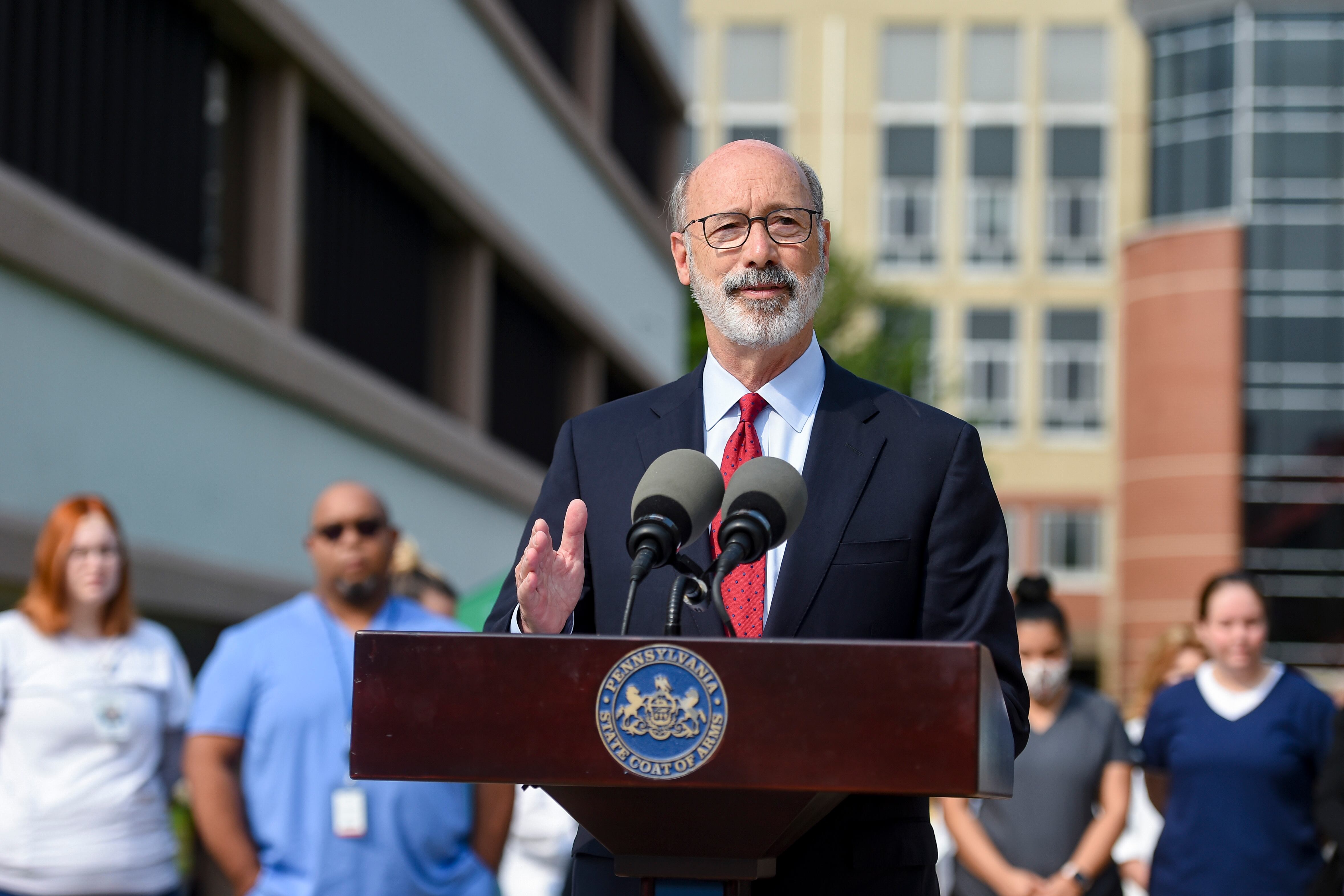In his final budget address, Pennsylvania Gov. Tom Wolf on Tuesday proposed a “generational” investment in state K-12 schools with what would be an historic 21% or $1.8 billion increase in education funding.
“Refusing to fund education equitably does not save us money,” said Wolf, who is finishing his second and last four-year term. “It just means we wind up spending more on social services, remedial programs, even prisons. And that calculation doesn’t even take into account the opportunity costs of failing to invest in our kids: the skills our workforce doesn’t develop, the products and services that never become reality, the business growth and tax revenues that vanish.”
The budget still must go through the Republican-dominated legislature, and early reaction has been negative, calling it unrealistic and overreaching.
“For the eighth straight year, it falls on the Legislature to rein in calls to dramatically increase state spending,” said House Speaker Bryan Cutler, a Republican from Lancaster.
Wolf laid out a total state budget plan with spending of $43.7 billion, up from $41 billion this year. He said that the state could afford such an increase without raising the state income or sales taxes. The state is projected to end this fiscal year with a $12 billion surplus, although Wolf also is projecting a 2% decrease in revenue collection this year.
His proposal includes a $70 million increase in early childhood education funding – $60 million into Pre-K Counts, which his office said would allow 2,300 additional children to attend preschool. The plan would put another $10 million into the Head Start Supplemental Assistance Program, but that mostly would cover rising costs.
Wolf’s budget also would standardize tuition at cyber charter schools at $9,800 per student, which he said would save districts $199 million. Now, each district pays a different amount per student in charter school tuition based on a complicated formula dependent on its own level of spending; by moving to this one figure, most districts would pay less.
It would also change the reimbursements for special education students at charter schools to conform more closely to their actual needs and the cost of educating them. Now, the formula sets each district’s special education fees for charters at one level – often three times the amount for a regular education student – regardless of the severity of the student’s disability. He said that change would save districts $174 million.
Philadelphia school officials said that the proposal, if adopted, would mean $410 million in new money for the district, in addition to bringing $145 million in savings due to the charter funding reforms.
In an emailed statement, Superintendent William Hite called Wolf’s proposal “bold” and said that “new, recurring funding paired with much-needed charter school funding reforms will significantly improve the District’s long-term financial outlook, allowing us to make new investments our students and schools deserve.”
Pennsylvania ranks 47th among the states in the percentage of K-12 education dollars that comes from the state as opposed to local districts, resulting in some of the widest spending gaps between rich and poor districts in the country.
In the past, Wolf has sought historic increases in education spending in an effort to close that gap, and has urged that the entire basic education subsidy money be funneled through a fair funding formula adopted by the legislature in 2016. In distributing funds to districts, that formula assesses need by assigning weights to students based on such factors as poverty and English language status, as well as looking at the concentration of poverty and a district’s wealth, taxing capacity, and tax effort.
But he was repeatedly stymied by the Republican-led legislature, which approved smaller increases than he sought and chose to allocate only new dollars through the formula and guarantee that no district, even those losing students, would receive less money than they got the year before.
While proposing the historic $1.25 billion increase in basic education aid, the largest single conduit of state money to districts, Wolf did not repeat his call for allocating all of it through the fair funding formula since that has been a non-starter with the legislature. In fiscal year 2021-22, basic education aid to the state’s 500 districts is about $7.1 billion.
But last year, in an effort to target more funds to the poorest districts, the legislature did approve a budget that included $100 million in so-called “level up” funding for the 100 poorest districts. For the 2022-23 school year, Wolf is proposing that $300 million be put in the “level up” pot.
“We can afford to invest a whole lot more in the fair funding formula without raising one penny in state taxes,” Wolf said in his budget address. “And we can afford to do it without asking any school district…to sacrifice one penny in state funding.”
Wolf also wants to improve college affordability by putting $200 million more into the Nelly Bly Scholarship funds to help students attend community colleges and schools in the state university system. Pennsylvania currently ranks among the bottom states in its overall support of higher education.







